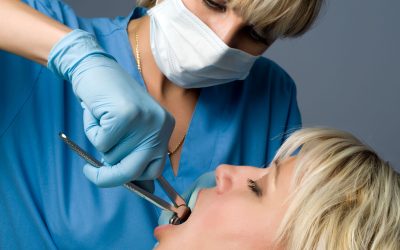Teeth with extensive damage, decay, or infection may not be treatable and need to be removed. A dentist or an oral and maxillofacial surgeon who specializes in mouth surgery, will perform the tooth extraction. An abscessed tooth, or tooth decay, that is severe makes it necessary when no other treatment can resolve tooth problems. By removing broken, damaged, or decaying teeth, infection can be kept from spreading to other areas of the mouth as well as causing further health problems.
The dentist will try to fix a damaged tooth with treatments such as fillings, crowns, and in some cases a root canal treatment. However, when the damage or decay has become too extensive to repair, the tooth will need to be extracted. A bridge or implant may be installed later to help with tooth loss.
There are many reasons dental extractions in Chicago may need to be performed. Some of the reasons include:
1. Teeth affected by advanced gum disease
2. Teeth with poor alignment or positioning
3. Impacted or overly crowded teeth
4. People who need room to be made in the mouth for new teeth coming in
5. To make extra room for braces that will move teeth into better placement
6. Wisdom teeth that have become impacted, painful, and swollen
There are two types of dental extractions in Chicago. The first is called a simple extraction, which is performed by the dentist who will loosen the tooth and then remove it with forceps. The second type, a surgical extraction, is more complex. In this procedure, the tooth is cut out. This is used in situations such as removing teeth that may have severe damage and are broken below the gum line. In addition, teeth that are not coming in properly may be causing problems or infections at a deeper level and will need to be extracted from the jawbone.
A local anesthetic injection is used for most simple extractions, but surgical extraction may require anesthesia. Depending on the person’s anxiety level, they may, or may not, need help relaxing with extra drugs. During the extraction, the patient is conscious and will not feel any pain, but may feel pressure and pinching.








